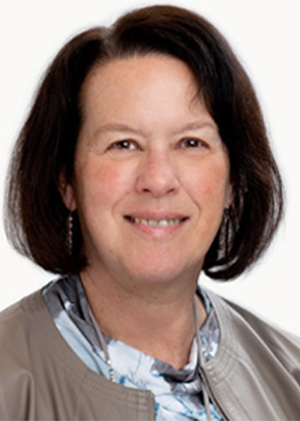Digital Debut
Meet the Board
Get to know your officers through these short interviews
INTERVIEWED BY SAHELY MUKERJI | AUGUST 27, 2025
 |
|
|
Rena Courtay, RN, CASC
|
|
We are running a series of Q&As with ASCA’s Board of Directors to help our members get to know them better. Meet Rena Courtay, RN, CASC, Board secretary and vice president of ambulatory surgery at Trinity Health in Cary, North Carolina.
Q: How did you get into the ASC space?
Rena Courtay (RC): I was an operating room nurse in a level 1 trauma center. I got into doing a lot of ENT [ear, nose and throat] cases because no one liked it and we had a lot of ENT! We opened an HOPD [hospital outpatient department] surgery center and I transferred there. I was circulating and scrubbing on ENT, orthopedic and general surgery cases. The doctors I worked with were opening a freestanding ASC and they recruited me to be the administrator. I knew absolutely nothing about opening an ASC, but I learned. That center is still open and is now a surgical hospital.
Quick Facts
Personal:
Age: 60
Place of birth: Columbus, Ohio
Residence: Cary, North Carolina
Family: Spouse, Philippe; and son, Tristan
Education: Bachelor of Science in Nursing, The Ohio State University; Master of Business Administration, Youngstown State University
Career highlights: Having the privilege to serve on the ASCA Board; my current role leading ambulatory surgery for Trinity Health; becoming an administrator at age 29; and my first vice president job with HCA Healthcare.
First job: Chemistry lab assistant
One-word description of self: Energetic
Go-to motto or phrase: If you don’t ask, you don’t get.
Your “superpower”: Team building
One thing most people at work do not know about you: I sing in a choir that performs oratorios like Handel’s Messiah.
Q: What are your aspirations for ASCA?
RC: I hope ASCA will continue to be the leading advocate for the ASC community. It is critical that we maintain our influence in shaping CMS [Centers for Medicare & Medicaid Services] policies that directly impact our members. I want us to remain the primary source for ASC-specific education, equipping our member centers with the knowledge and tools they need to thrive. Additionally, I believe ASCA should establish itself as the foremost authority in ASC benchmarking, setting the standard for quality, efficiency and performance across the community.
Q: Who was a great mentor for you?
RC: My father has been my most important mentor. He grew up in the coal camps of West Virginia and ended up being the CEO [chief executive officer] of a large mining manufacturing company. He was driven, persistent and always optimistic. He taught me the value of hard work and also encouraged me to chase my dreams. He valued education and continuous learning. One of the things he always said was that the sign of a great leader is when things run just as well after they leave or are gone for a while because that means they had everything set up for success. He was always my biggest cheerleader. He also taught me to value my team as they make an organization what it is.
Q: What are you most proud of in your ASC work?
RC: I’m incredibly proud of the teams I have built throughout my career in the ASC community. At every step, I have made it a priority to foster teams that collaborate, support one another and truly thrive together. It has been rewarding to see how that teamwork translates into meaningful results for our patients. I am proud of the work we do every day in our ASCs—helping people return to living their best lives through high-quality, cost-effective care.
Q: If you could change one thing about the ASC community, what would it be?
RC: We should promote ourselves more!
Q: What excites you most about the future of ASCs?
RC: The growth potential in the ASC industry remains enormous. We anticipate a 21 percent increase in the overall value of ASCs over the next few years. Case volume continues to shift from inpatient to outpatient settings—a trend I don’t see slowing down anytime soon. Our centers provide an ideal solution for outpatient surgeries, delivering high-quality care in a more cost-effective environment. This benefits not only our patients but also payers—especially CMS—by helping reduce the overall cost of care while maintaining excellent outcomes.
Q: What legacy do you hope to leave in the ASC space?
RC: The legacy I hope to leave in the ASC space is that of sharing my passion for everything our community represents—delivering accessible, high-quality care that is efficient and cost effective.